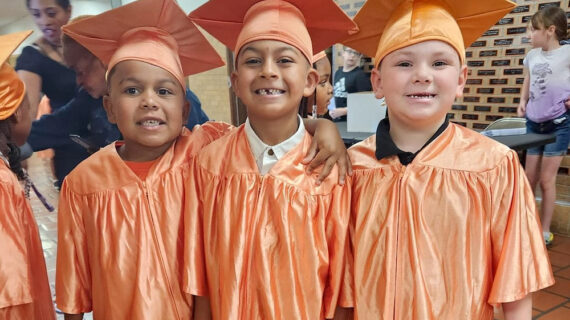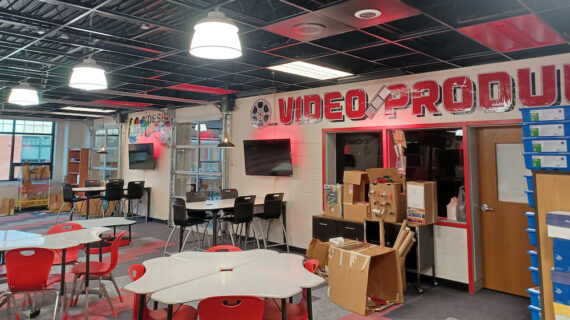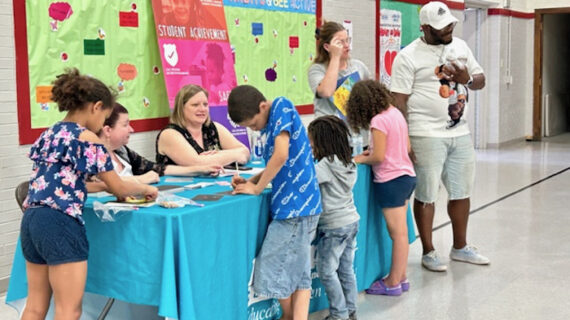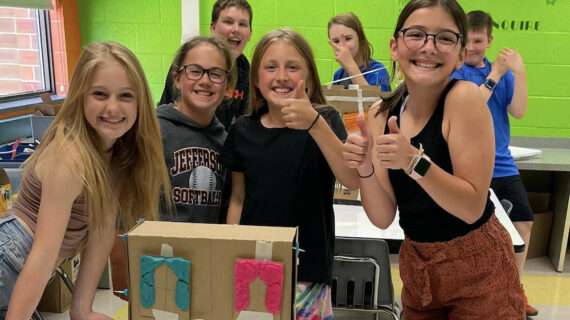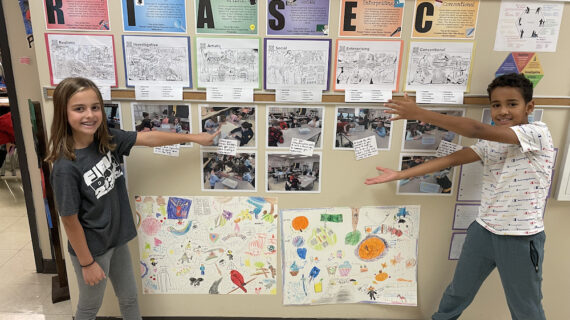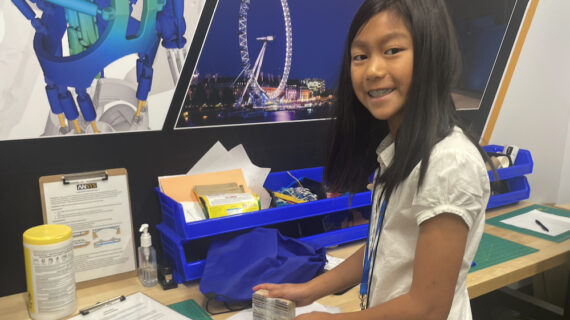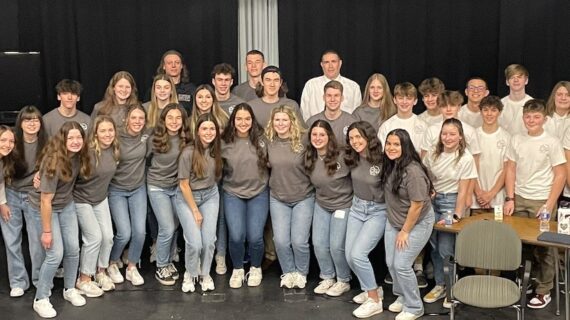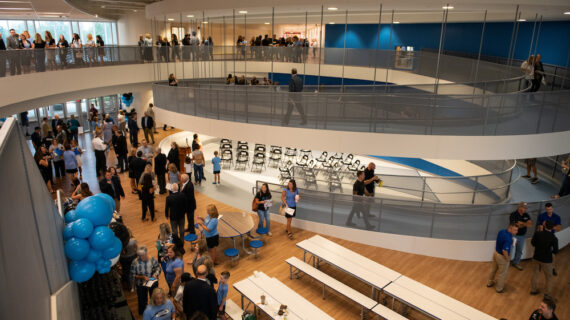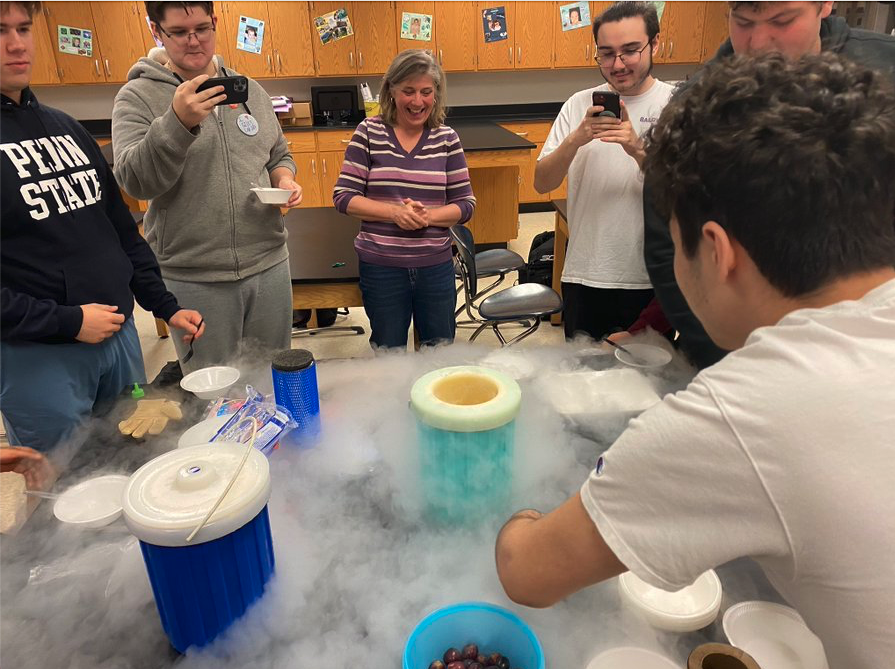
‘We’re not willing to sit back and settle’: Building community and breaking barriers at Baldwin-Whitehall
This story is one in a series created in collaboration with the AASA Learning 2025 Alliance to celebrate the work of groundbreaking school districts in the Pittsburgh region. Kidsburgh will share these stories throughout 2023.
When it comes to raising career-ready students, we tend to think of traditions: mock interviews, internships, career fairs, and more. What we don’t think of are video games. Unless, that is, we find ourselves in the Baldwin-Whitehall School District near Pittsburgh.
“There’s a misconception that esports is simply students playing video games in isolation in a dark basement or bedroom,” says Janeen Peretin, the district’s director of communication, innovation, and advancement. “Competitive gaming is anything but that!”
Indeed, the district’s burgeoning esports program is part of a $2 billion global industry, with leagues that include universities nationwide. In addition to preparing kids for careers in everything from marketing to management, esports teams also teach essential professional skills: problem-solving, teamwork, communication, and leadership, among others.
Most importantly, esports leverage young people’s interests, sparking motivation to practice, persevere, and grow. When Baldwin-Whitehall surveyed its middle and high school students, “We had an overwhelming response from kids who consider themselves gamers,” says Peretin.
For them, esports are every bit as high stakes as a football game. Esports teams even compete on college campuses for a live audience, “and the excitement the students bring is just unbelievable.”
The district’s esports program embodies a larger effort to ensure that every student — regardless of background, ability, or interest — is ready for the world beyond Baldwin-Whitehall’s doors.
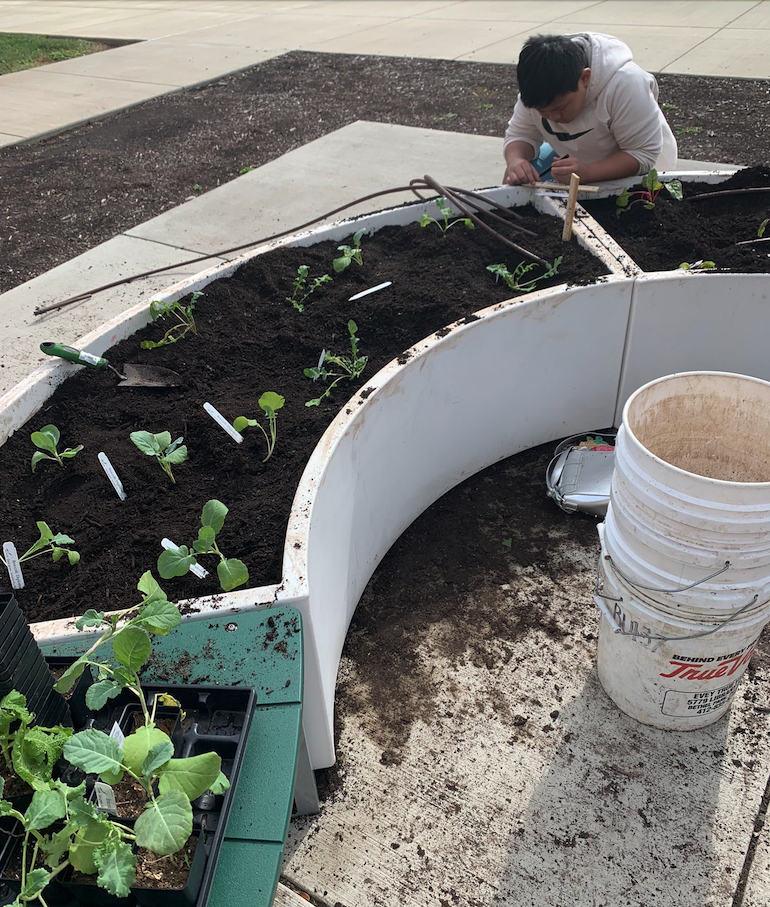
It’s a complicated task in a fast-changing district, where families speak 42 different languages and the percentage of students who qualify for free and reduced-price lunch has more than doubled. Baldwin-Whitehall’s families and staff, however, share something important in common: “We’re not willing to sit back and settle,” says Andrea Huffman, director of elementary education. “We’re willing to do the hard work — whatever it takes for our students.”
That willingness led Baldwin-Whitehall to join the Western Pennsylvania Learning 2025 Alliance, a regional cohort of school districts working together — and with peers across the country — to create student-centered, equity-focused, future-driven schools that prepare every learner for tomorrow. Led by local superintendents and AASA, The School Superintendents Association, the Alliance convenes for workshops, networking opportunities, and professional development that helps districts like Baldwin-Whitehall do what they do best: provide a path for every student to become the best of whoever they are.
“Having the opportunity to work with and visit other districts has been a powerful experience that validates and supports what we’re trying to do,” says Huffman. “The resources the Alliance has made available have given us the extra boost to really dive in — to keep innovating, keep evolving, and keep trying new things.”
Baldwin-Whitehall is reimagining everything from high school schedules to career readiness in kindergarten to culturally-affirming supports for the district’s growing Nepali community. The common thread is inclusion, says Jill Fleming-Salopek, director of secondary education.
“In every part of our district, we’re looking at how to intentionally incorporate the skills students need to be successful when they graduate, whether they’re gamers, English Language Learners, students with special needs, or all of the above.”
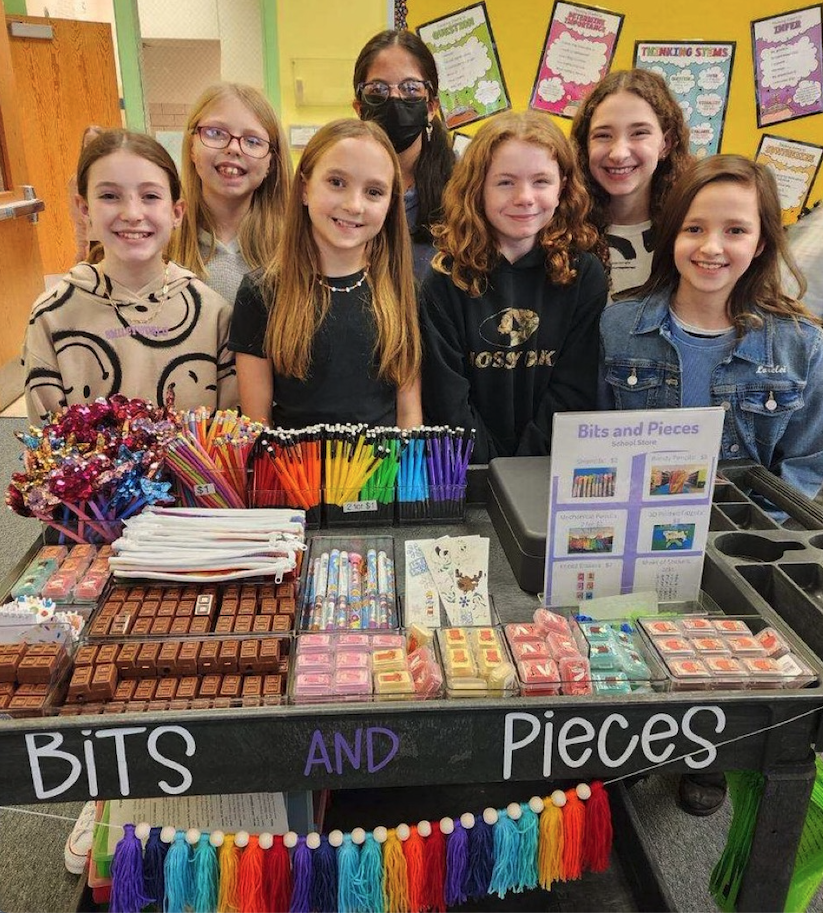
She cites the Baldwin Bean as an example. A student-run coffee shop in the district’s high school, the Baldwin Bean pairs students in regular education classes with students with special needs, giving both parties experience running a business and working with peers. The district even offers juniors and seniors access to child development and special education courses at the Community College of Allegheny County.
Meanwhile, with support from the Western Pennsylvania Learning 2025 Alliance, the district’s esports teams are expanding opportunities for students who might not otherwise have access. The required technology is expensive, says Peretin, and beyond the means of many students and families. But the esports program breaks that barrier down, offering students a path toward tomorrow’s careers.
So far, the district’s efforts seem to be working. The esports teams are headed for the playoffs, and the future looks bright for Baldwin-Whitehall.
“Historically, we used to see a lot more transition among families, especially among our English Language Learners,” says Huffman. “They’d stay in our district for a year or two, and then maybe buy a home someplace else. But today, our families are staying. They’re buying homes here. They’re building community here. We’re really proud of that.”
The students are proud, too. “We see them walking into our buildings and they’re happy and healthy and free to be their authentic selves. That’s really special,” Peretin says. “And during events like commencement, when they can look around and see how diverse they really are, and they can see how much they’ve accomplished together, I think they leave Baldwin-Whitehall knowing they’ve had a valuable experience. And our students honor that.”
Want to download this story? Click here for a PDF.
